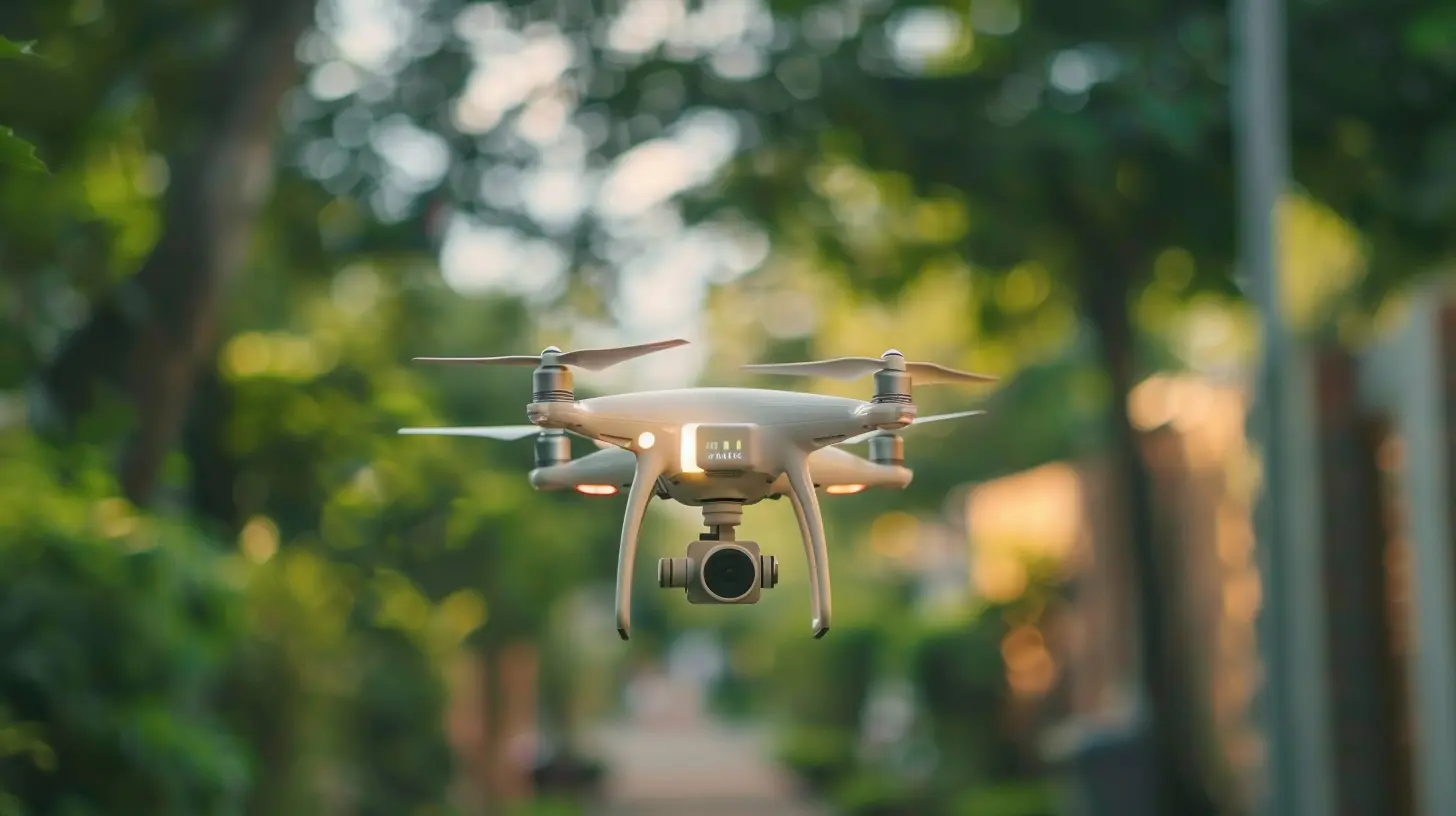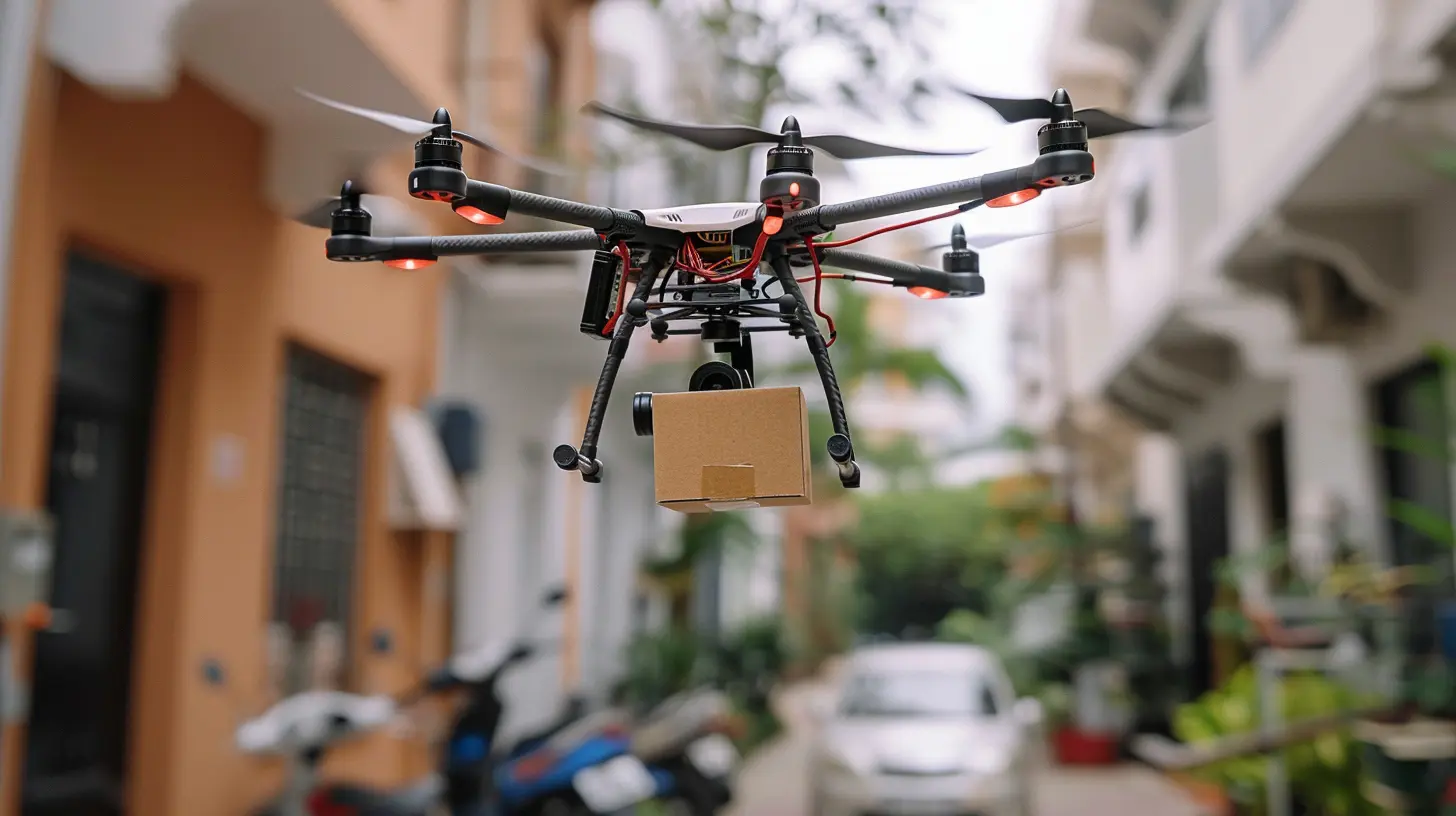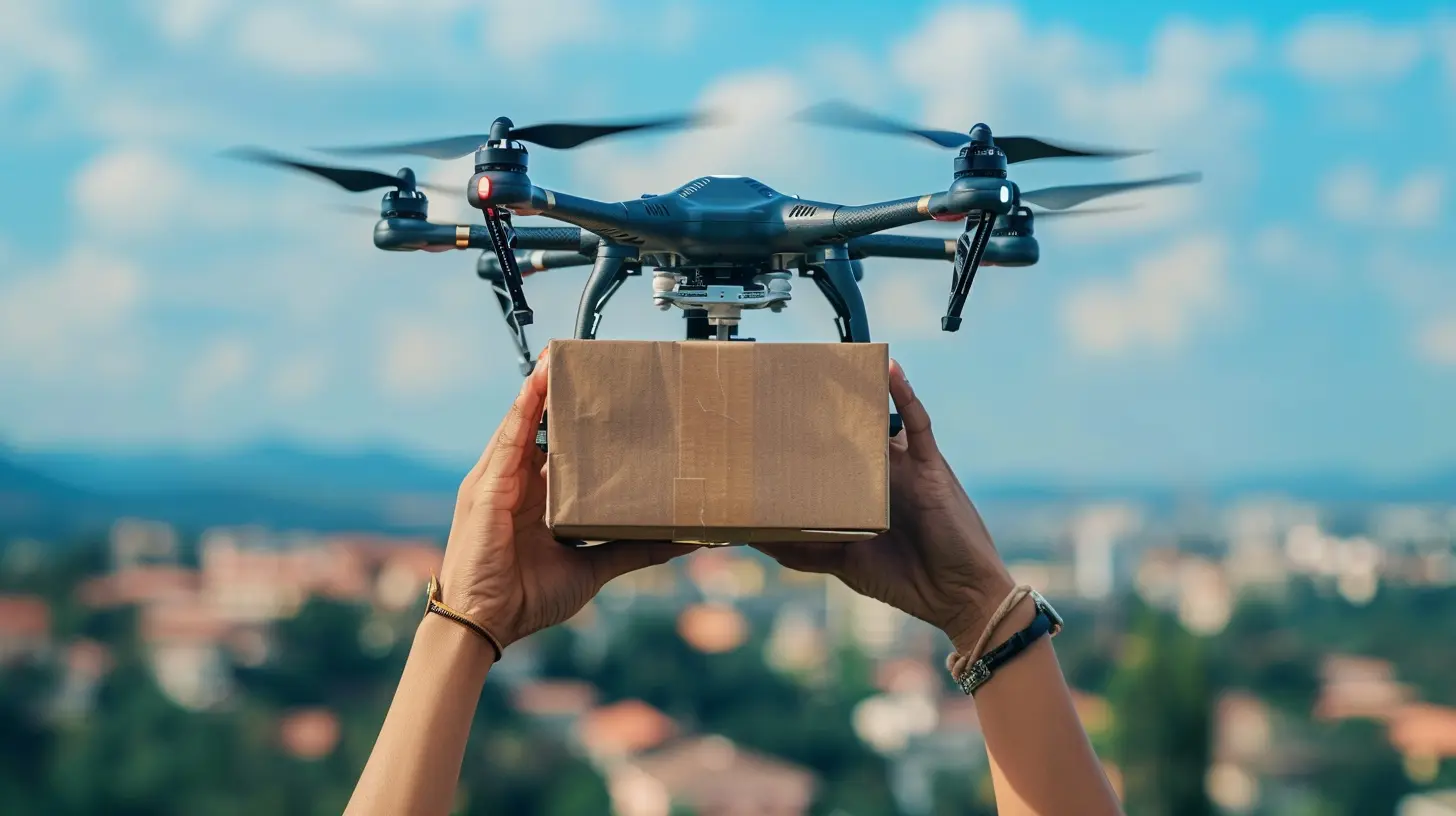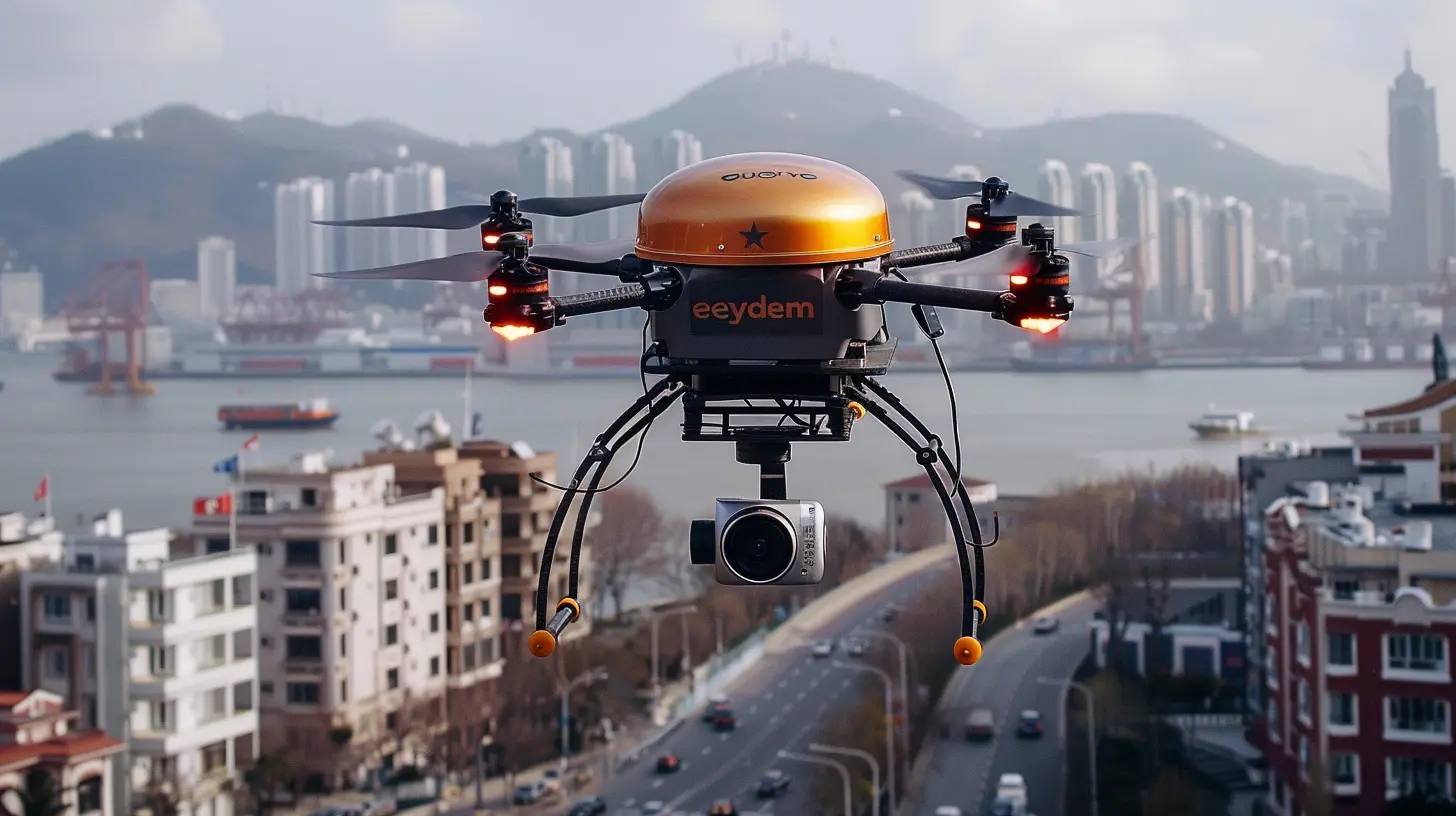Exploring the Future of Drone Deliveries in E-Commerce
23 June 2025
E-commerce is evolving at a rapid pace, and one technological breakthrough that’s generating a lot of buzz is drone delivery. Imagine placing an online order and having a flying robot drop it off at your doorstep within minutes. Sounds like something out of a sci-fi movie, right? Well, it's becoming a reality faster than we think.
But will drones completely revolutionize e-commerce logistics, or are they just another tech fad? Let’s dive into the future of drone deliveries and what they mean for businesses, consumers, and the logistics industry. 
The Rise of Drone Deliveries
A Game-Changer for E-Commerce
Over the past decade, e-commerce has exploded, with companies racing to offer faster shipping options. First, we had same-day delivery, then one-hour delivery, but drones have pushed the limits even further. They promise delivery times as short as 30 minutes, making traditional courier services look outdated.Big players like Amazon, Walmart, and UPS have already tested drone deliveries, and the results are impressive. Companies see drones as the perfect solution to rising logistics costs, traffic congestion, and environmental concerns.
Government Regulations and Challenges
While drone delivery sounds amazing, it’s not as simple as just launching thousands of drones into the sky. Governments worldwide are cautious about regulating airspace, ensuring safety, and addressing privacy concerns.For instance, the Federal Aviation Administration (FAA) in the U.S. has strict guidelines about drone operations, including:
- Weight restrictions
- Flying altitude limits
- Need for remote pilots
These regulations ensure safety, but they also slow down mass adoption. Until policies become more drone-friendly, large-scale implementation will remain a challenge. 
How Drone Deliveries Work
The Technology Behind It
Drone delivery isn’t just about strapping a package onto a flying machine and sending it off. These advanced systems rely on:- AI and GPS Navigation: Ensuring precise delivery locations
- Sensors and Obstacle Detection: Avoiding trees, buildings, and birds
- Automated Sorting and Dispatching: Faster order processing
Companies use sophisticated machine learning algorithms to optimize delivery routes, minimize battery consumption, and avoid delays.
Delivery Speed & Efficiency
Drones operate much faster than traditional vehicles. They don’t get stuck in traffic, they take direct paths, and they reduce last-mile delivery time significantly. A drone can deliver a small package from a warehouse to your home in under 30 minutes, compared to 1-2 days with standard shipping.That’s a game-changer, especially for:
- Online grocery stores
- Medical supplies and pharmaceuticals
- Fast fashion brands
Consumers expect instant gratification, and drone deliveries are pushing boundaries to meet that demand. 
Benefits of Drone Delivery in E-Commerce
1. Ultra-Fast Delivery
One of the biggest advantages of drone delivery is speed. Traditional logistics methods take hours or days, while drones can make deliveries in minutes. That’s perfect for urgent deliveries like medications or last-minute gifts.2. Reduced Costs for Businesses
Shipping costs eat up a huge portion of an e-commerce company’s budget. Drones eliminate the need for:- Large fleets of delivery trucks
- Fuel expenses
- Labor costs for drivers
By cutting down these costs, businesses can offer cheaper shipping rates to customers or reinvest in better services.
3. Environmentally Friendly Delivery
Unlike gas-guzzling delivery trucks, drones run on electricity, reducing the carbon footprint of each delivery. Lower emissions mean a greener, more sustainable logistics system.4. Improved Accessibility
Drones aren’t just convenient—they’re also life-changing for rural and remote areas where traditional delivery services struggle. Imagine living in a small town where shipping takes weeks, but with drones, your package arrives the same day.5. Decreasing Traffic Congestion
With more online shopping comes more delivery vehicles on the road, increasing urban traffic congestion. By shifting lightweight deliveries to drones, cities can cut down on road traffic, reducing delays and accidents.
Challenges That Drone Delivery Still Faces
1. Limited Payload Capacity
Drones are great for small, lightweight packages, but they can’t carry heavy items like furniture or bulk orders. Their weight capacity is typically under 5kg (11 lbs), so they’re best suited for delivering small electronics, documents, or food.2. Weather Dependency
Ever tried flying a drone in strong winds or heavy rain? Not a good idea. Bad weather conditions can disrupt deliveries, making drones unreliable in certain areas.3. Public Safety & Privacy Concerns
Having thousands of drones buzzing around raises concerns about:- Potential accidents (drones crashing into people or buildings)
- Noise pollution
- Privacy issues (drones capturing video footage during deliveries)
Convincing the public that drone deliveries are safe will take time.
4. Air Traffic Control Issues
Imagine hundreds of drones flying in the sky at any given time. Without proper air traffic management, we could see mid-air collisions and system failures. That’s why governments need to develop strict guidelines on airspace usage.Future of Drone Deliveries in E-Commerce
Mass Adoption is Inevitable
Despite the challenges, the future of drone deliveries looks promising. Advances in AI, battery efficiency, and government-friendly regulations will pave the way for widespread drone adoption in the next decade.Integration with Smart Homes & AI
In the future, drone delivery systems might sync with smart home devices. Your drone could arrive and place the package in your smart lock-enabled mailbox or even deliver it directly into your house using AI-powered authentication.Fully Autonomous Delivery Networks
Right now, most drone deliveries still require human supervision, but that’s changing fast. Soon, we might see fully autonomous air delivery systems, where AI-controlled drones handle everything from pickup to drop-off.Expansion Beyond Retail
While retail e-commerce will benefit massively from drones, other industries will jump on board too. We’ll likely see drones delivering emergency medical supplies, disaster relief aid, and even fast food orders in urban areas.Final Thoughts
Drone deliveries aren’t just a futuristic concept anymore—they’re well on their way to becoming a reality. While challenges like regulations, technical limitations, and public skepticism still exist, the benefits far outweigh the drawbacks.The way we shop online is constantly evolving, and drones are set to redefine the e-commerce experience. Faster, greener, and more efficient deliveries are on the horizon. The only question is—are you ready for your next order to be dropped off by a drone?
all images in this post were generated using AI tools
Category:
E CommerceAuthor:

Adeline Taylor
Discussion
rate this article
2 comments
Flint Malone
This article offers a fascinating glimpse into the future of drone deliveries in e-commerce. The potential for increased efficiency and reduced delivery times is exciting. However, challenges such as regulations and safety concerns must be addressed. It will be interesting to see how this technology evolves in the coming years!
November 11, 2025 at 1:01 PM

Adeline Taylor
Thank you for your insightful comments! You're right—while the potential is promising, addressing regulations and safety will be crucial for the successful integration of drone deliveries in e-commerce. Exciting times ahead!
Priscilla Kelly
Exciting times ahead! Drone deliveries promise to revolutionize e-commerce, making shopping faster and more efficient. The future is bright!
June 29, 2025 at 3:35 AM

Adeline Taylor
Thank you! We're thrilled about the potential of drone deliveries to transform e-commerce and enhance the shopping experience. Stay tuned for more innovations ahead!


